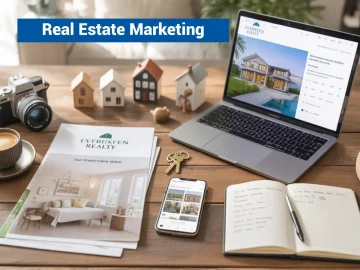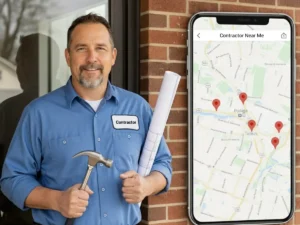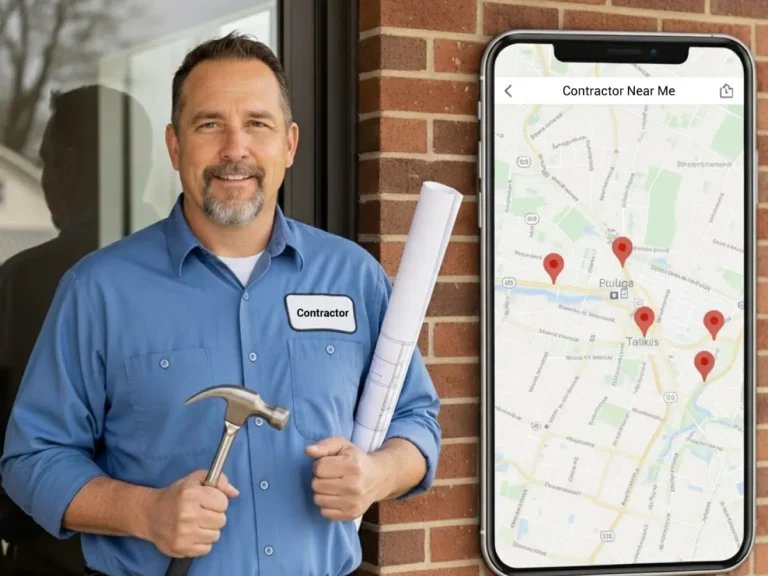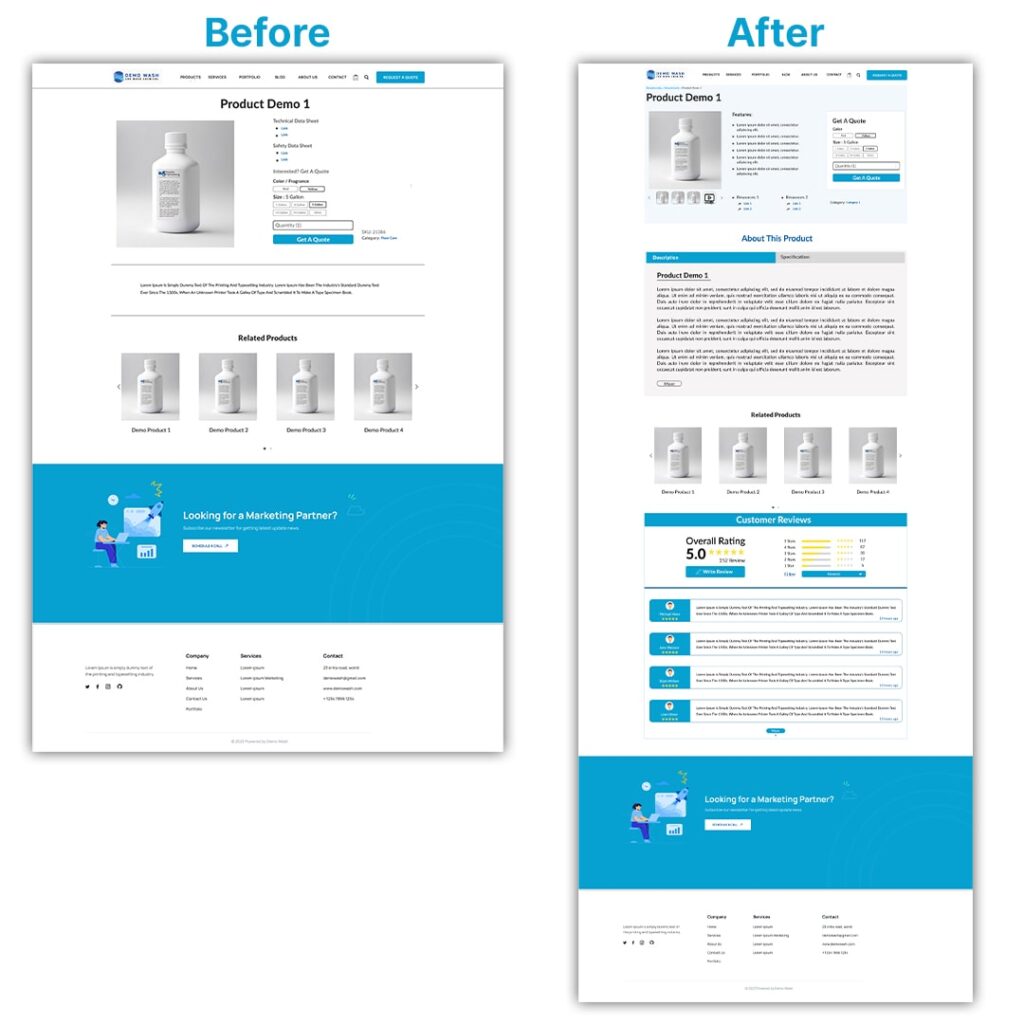The real estate market never stands still—and neither should your marketing. With 2026 here, buyers and sellers are savvier, more digital, and expect faster, smarter service.
So, how do you keep up? Well, by using modern, creative, and highly effective real estate marketing ideas that meet people where they are and, most importantly, guide them home.
In thie following blog, we will be sharing 30 innovative marketing strategies that go beyond the basics. Hence, if you are looking to boost your personal brand, dominate your local market, or simply close more deals, you are bound to find real estate marketing ideas here that match your goals and your style.
Curious to know more? Keep reading!
What is Real Estate Marketing?
Real estate marketing is the process of promoting yourself as an agent and advertising properties to attract buyers, sellers, and clients.
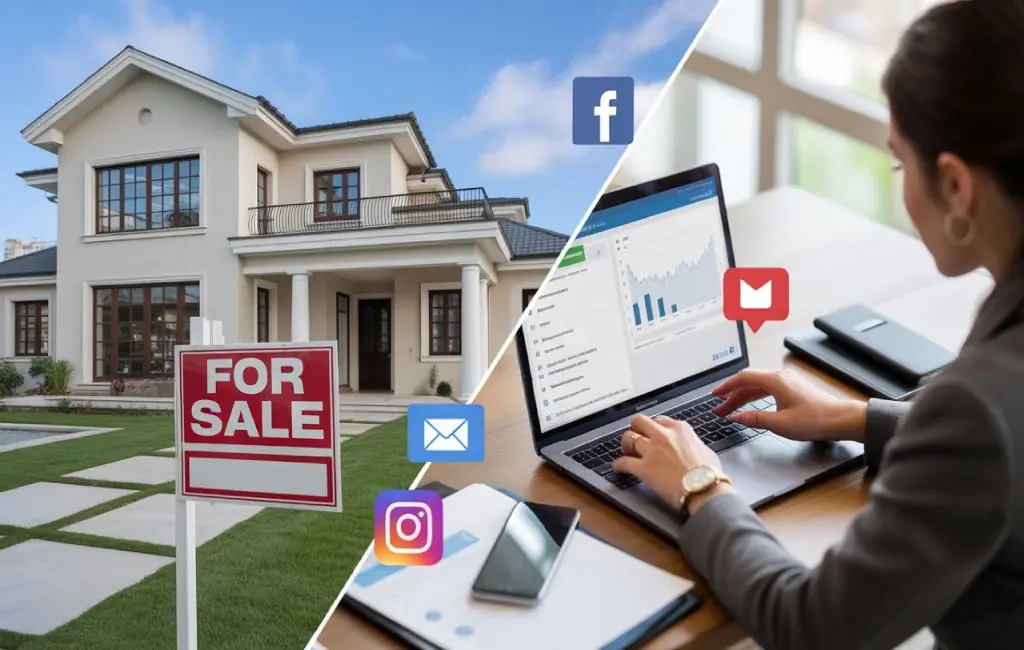
It includes everything from social media and email campaigns to open houses and online listings to grow your brand, build trust, and generate leads in the competitive housing market.
For instance, let’s say you are just getting started with marketing for real estate agents. You take a new listing, create a video walkthrough, write a blog post about the neighborhood, and share it on your business Instagram and LinkedIn.
This is a great example of real estate business marketing as you are not just selling a home, you are building a brand, educating your audience, and staying visible online.
So, if you are looking for a simple real estate marketing definition, it’s this: using smart, consistent strategies to connect with clients and grow your business.
Why is Real Estate Marketing Important?
As always, thousands of agents are competing for the same clients, which ultimately makes marketing for real estate extremely important.
Hence, if you’re working solo or part of a larger agency, a well-executed marketing strategy is what fuels visibility, builds credibility, and drives consistent business. In short, it’s the engine that helps your real estate business grow and here’s why they are essential:
Attracts Qualified Buyers and Sellers
Great marketing doesn’t just get attention—it gets the right attention. From SEO-optimized listings to targeted social media ads, strategic marketing helps you connect with people who are actively looking to buy or sell. This means less time chasing cold leads and more time closing deals.
Builds a Personal Brand People Trust
In the real estate world, your personal brand is everything. Through consistent content, polished visuals, and a clear message, marketing shapes how people perceive you. It also helps you stand out, stay memorable, and become the first agent that comes to mind when someone is ready to move.
Accelerates Business Growth
Want to see your real estate business grow steadily over time? Marketing is the bridge between where you are now and where you want to be.
Whether it’s growing your online presence, building an email list, or nurturing long-term relationships, the right strategies help you scale with confidence and consistency.
Creates a Competitive Advantage in Your Market
Your competition isn’t just local anymore—buyers and sellers are comparing agents online before ever making contact. Modern marketing gives you the real estate competitive advantage by positioning you as a knowledgeable, approachable, and tech-savvy expert who’s ahead of the curve.
Establishes You as a Market Authority
People don’t just want agents—they want experts. And by sharing market insights, neighborhood guides, testimonials, and success stories, you are showing clients that you are more than just a salesperson—you are a trusted advisor who knows the market inside and out.
Keeps You Top-of-Mind
Not every lead is ready to buy or sell right now. Smart real estate marketing ideas, like monthly newsletters or helpful social content keeps you on their radar until they are ready.
So, when the time comes, you will be the one they call.
30 Real Estate Marketing Ideas Aligned with Current Trends
Let’s face it—real estate marketing ideas in 2026 are a whole different game. What worked five years ago doesn’t cut it anymore.
With buyers and sellers turning to Google, Instagram, YouTube, and even TikTok before contacting an agent, your marketing efforts need to evolve alongside these digital habits.

The good news? There are more ways than ever to connect with your audience. From short-form video to hyperlocal SEO, today’s top agents are using trend-aligned strategies to build trust, drive traffic, and generate high-quality leads.
Here’s a look at some of the most powerful and current real estate marketing ideas worth exploring this year—each one rooted in what’s actually working right now.
1. Build a Strong Online Presence
Today’s buyers and sellers are looking you up online before they ever reach out. Your digital footprint is your first impression.
This includes your website, social media profiles, Google reviews, and anywhere else your name appears.
Hence, keep everything up-to-date, aligned with your brand, and full of value-driven content. In short, every piece of your digital identity should reinforce your brand and clearly communicate: “I’m the local expert you have been looking for.”
2. Create a Professional Website
First off, you must think of your website as your 24/7 sales agent. Meaning, it should be beautifully designed and strategically built to guide visitors into action.
You can use clean layouts, fast load times, intuitive navigation, and mobile optimization to create a seamless experience. Also, include searchable MLS/IDX listings, a lead magnet, neighborhood pages, testimonials, and an “About” section that talks about you.
Integrate CRM tools and chat widgets to turn visitors into real leads.
Bonus Tip: Use heatmaps or user tracking tools like Hotjar to improve layout and flow.
3. Develop Property-Specific Landing Pages
Give each listing the attention it deserves. Property-specific landing pages offer a clean, focused experience for potential buyers, free from distractions.
Add high-res photos, drone videos, virtual tours, detailed features, and an inquiry form. Bonus: use these pages in Facebook or Google Ads for higher conversion rates.
4. Start a Real Estate Blog
Blogging builds long-term SEO power, educates your audience, and positions you as a local expert.

Write about topics your ideal clients are actually searching for like “Is [Your City] a buyer’s or seller’s market right now?” or “How to prepare your home for a fast sale.” Plus, keep it consistent and evergreen, and you will build trust before the first conversation.
5. Use Hyperlocal SEO for Neighborhood Branding
Hyperlocal SEO involves optimizing your content for highly specific searches like “homes for sale in [neighborhood] with a pool” or “moving to [school district].” Use location-based pages, blog content, and Google Business categories to claim your space on the map.
That is, hyperlocal SEO helps you show up in the exact searches motivated buyers and sellers are typing in right now.
6. Repurpose Evergreen Content
You don’t need to reinvent the wheel every week. Instead, all you have to do is take your top-performing blogs or videos and repurpose them into different formats: turn a blog into an infographic, a webinar into a YouTube clip, a Reel into an email tip.
Evergreen content, such as, staging guides, financing tips, or seller checklists can generate leads for years if repurposed well. Hence, schedule reposting quarterly with updated graphics or stats to keep it fresh and relevant.
7. Create Interactive Content
Interactive content makes your website sticky—and your brand memorable. Add tools like polls, quizzes, calculators (e.g., “What’s your home worth?”), or even interactive maps of neighborhoods.
Interactive content keeps people on your site longer and gives them a reason to return. Plus, it provides insight into what your audience is actually looking for.
8. Optimize Your Google Business Profile
Your Google Business Profile is a local SEO powerhouse. Fill it out completely with photos, business hours, service areas, FAQs, and your brand story.
Also, make sure to post weekly updates and respond to every review, good or bad. A well-maintained profile boosts visibility in local search and helps people choose you over competitors.
9. Optimize for AI-Powered Search Engines
Search is changing. With AI tools like Google’s SGE (Search Generative Experience) and Bing AI, how content is ranked and presented is evolving super fast.
Therefore, focus on conversational content that answers common questions, uses natural language, and is structured with clear headings, bullet points, and rich media. Simply put, your content should be:
- Rich in FAQs and bullet points
- Written in a conversational tone
- Supported with media (videos, diagrams, visuals)
- Optimized for voice search and featured snippets
- Anticipate how people ask questions and create content that sounds like a helpful answer, not a sales pitch.
10. Create Engaging Social Media Content
Instead of just posting listings, share stories, behind-the-scenes moments, tips, local news, and even client milestones. Show the human side of your business.
You can also use short-form video (Reels, TikToks), educational carousels, and engaging captions to spark conversation. Remember: people buy from people they feel connected to.

11. Use Predictive Social Media Ads
Predictive social media advertising makes the proper utilization of behavior data, engagement history, and AI-powered insights to target users who are most likely to buy or sell in the near future.
Platforms like Facebook, Instagram, and Google allow you to retarget website visitors, custom audiences (like your email list), and even “lookalike” users.
Combine predictive targeting with dynamic content, such as, listings they recently viewed to increase relevance and click-through rates.
12. Set Up and Optimize Your Social Media Profiles
Before you start posting, make sure your social media presence looks polished and professional. Use a consistent headshot, brand colors, and bio across all platforms (Facebook, Instagram, LinkedIn, YouTube, and even TikTok).
Plus, add a link to your website or Linktree, highlight client reviews, and use pinned posts to feature your most important content (e.g., “Start Here,” active listings, or your homebuyer guide).
Social proof starts with first impressions, make yours count too!
13. Distribute Real Estate Postcards
Direct mail is just getting smarter now. Hence, make sure to send professionally designed real estate postcards with local market stats, just-sold success stories, or upcoming open houses.
Use QR codes to drive recipients to a listing page or home value calculator. The key is personalization: “We just sold a home near you for 8% above asking—want to know what yours is worth?”
Bonus: Integrate postcard campaigns with digital ads for omni-channel reach.
14. Use Instagram Reels and Stories
Short-form video is the most powerful organic content format right now. For example, Instagram Reels and Stories allow you to show quick behind-the-scenes clips, give home tour highlights, answer FAQs, or even hop on trending sounds to expand reach.
Use captions, hashtags, location tags, and CTAs like “DM for more info.” Stories create urgency and allow for direct interaction with polls, Q&A boxes, or swipe-ups.
Reels help you get discovered while Stories help you build connections.
15. Utilize Local Hashtags to Increase Visibility
Local hashtags are a goldmine for discovery on platforms like Instagram and TikTok. So, use hashtags like #LivingIn[City], #YourNeighborhoodHomes, or #[City]RealEstate in your posts and stories to get in front of people actively exploring your area.
Combine broad real estate tags (#HomeGoals, #JustListed) with location-specific ones to reach both warm and cold leads. You can even create a branded hashtag to track your own content and build community (e.g., #HomesWithHannah).
16. Implement Email Marketing Campaigns
Email marketing is still one of the highest-ROI channels in real estate, when done right. Create segmented email campaigns tailored to specific audiences (buyers, sellers, investors, past clients).
Also, use automations to follow up with leads, nurture them through the decision-making process, and share valuable content like blog posts, listings, and local updates. Keep your subject lines engaging and your calls-to-action clear. Remember: The more relevant your emails, the higher your open and click rates.
17. Send Monthly Newsletters
A monthly real estate newsletter is the perfect way to stay top-of-mind without being salesy. Include local market stats, upcoming events, featured listings, client spotlights, and helpful tips.

Add a “What’s new with me?” section to share personal wins or community involvement, it helps to boost up your brand.
Make sure your newsletter is visually appealing, mobile-friendly, and includes clickable links and clear next steps (like “Book a Home Strategy Call”).
18. Incorporate Video Marketing
Video is no longer optional, it’s expected. Hence, make sure to use it in every stage of your marketing funnel:
- Top of funnel: Educational videos, market updates, and community tours
- Middle: Virtual tours, client testimonials, FAQs
- Bottom: 1-on-1 video follow-ups, listing presentations, personalized messages
Upload to YouTube, embed in emails, use on landing pages, and share clips on social media. Don’t worry about perfection—authenticity wins attention.
19. Create Property Walkthroughs
Start with exterior drone footage, then walk through the home room-by-room with commentary. Highlight unique features (“This space is perfect for hosting family dinners”) and use music and captions to enhance the experience.
These videos are perfect for YouTube, Facebook, and listing pages and for the best part, they can be reused in ads and emails.
20. Start a Podcast
Podcasting is a growing channel for niche influence and brand building. Launch a weekly or biweekly podcast to discuss market trends, answer common client questions, or interview local experts (lenders, contractors, small business owners).
You don’t need a studio—just a mic, a plan, and a message. Repurpose episodes into blog posts, audiograms for social media, and newsletter features.
Over time, your voice will become part of your clients’ weekly routine, building trust and keeping you on top-of-mind awareness.
21. Utilize Traditional Marketing Methods
In a digital-first world, traditional marketing might seem outdated but it still works when done intentionally. Such as, high-quality direct mail with QR codes, door hangers featuring local stats, handwritten thank-you notes, and branded merchandise.
To be more specific, sending a printed market update with a “Scan to Watch Video Breakdown” QR code bridges offline and online effectively. These tactile experiences stand out and leave lasting impressions, especially among older sellers or higher-end clientele.
22. Attend Local Events to Build Connections
People hire agents they like and trust and in-person connections accelerate both. Attend or sponsor community events like school fundraisers, street fairs, farmers’ markets, or networking mixers.
Plus, you can level up a step further by setting up an interactive booth (such as: prize wheel, photo backdrop, or real estate myth-busting game).
The goal? Bring value, not just branding. These moments aren’t about selling, they are more about being remembered when it’s time to buy or sell.
23. Utilize AI for Market Analysis and Personalized Outreach
AI can analyze neighborhood trends, pricing patterns, and buyer behavior faster than any spreadsheet. Use AI tools (like ChatGPT, RPR, or predictive CRMs) to:
- Analyze pricing trends and neighborhood turnover rates
- Identify sellers likely to list based on behavioral data
- Generate hyper-personalized email or ad copy.
24. Implement Chatbots
Website visitors often bounce if they don’t find what they are looking for fast. A chatbot, especially one powered by AI can guide them instantly: offering listings, scheduling showings, or answering basic questions like “What’s my home worth?” Set up smart flows:

- Buyer path → show recent listings under their price point
- Seller path → offer home value estimate
- Renter/investor → invite to consultation
Leads shouldn’t have to wait for your office hours to start engaging with you.
25. Ensure Full Mobile Optimization
There’s a big difference between a website that loads on mobile and one that’s actually optimized for it. In 2026, your mobile experience should feel like a polished app, such as the following:
- Thumb-friendly navigation
- Fast-loading listing photos and virtual tours
- Click-to-call buttons and auto-filled lead forms
- Integrated chat or scheduling tools
Bonus Info: Google also uses mobile-first indexing! So a great mobile experience boosts both UX and SEO. Test your site regularly and audit with tools like PageSpeed Insights or Mobile-Friendly Test.
26. Engage with Local Communities
Real estate is local. Engage with your community both online and offline: join Facebook groups, sponsor youth teams, comment on local forums, and collaborate with nonprofits.
Offline, join your chamber of commerce, volunteer for a cleanup day, or host a real estate Q&A at the community center. The goal: become the local go-to resource, not just another agent. When your name pops up enough in meaningful, positive contexts, clients will come to you.
27. Partner with Local Vendors
Team up with mortgage brokers, home inspectors, landscapers, and even photographers for co-marketing opportunities.
Feature them in your content, share their promotions, or bundle your services into a “local real estate toolkit.” You will gain referral traffic, credibility, and exposure to new audiences, all while offering more value to your clients.
Build relationships with:
- Mortgage brokers → co-branded webinars
- Interior designers → staging discounts
- Contractors → value-add for home prep
- Coffee shops or yoga studios → cross-promotion on social
28. Try Creative Community Engagement Ideas
Create community challenges like “Cutest Porch Contest,” run back-to-school backpack drives, or hide gift cards in open houses as a giveaway hunt.
Also, promote these on social media with branded hashtags and encourage user-generated content. The more memorable, interactive, and feel-good your engagement, the more likely people are to share it and associate you with value and personality.
29. Offer Unique Client Services
In today’s competitive climate, little extras go a long way. Offer concierge-level touches like:
- Free pre-listing home cleanings
- Branded moving boxes
- ”Closing Day Survival Kits” with snacks, labels, tape
- Monthly home maintenance reminders post-sale
Each thoughtful gesture reinforces your value beyond the transaction. It turns happy clients into raving fans and into referral machines.
30. Offer Virtual Consultations
Not everyone can meet in person—or wants to. Therefore, offering Zoom consultations shows you respect people’s time, lifestyle, and preferences.
Also, you can use virtual tools for listing presentations, buyer strategy sessions, home tours, or market updates.

Bonus: record them (with permission) so clients can revisit details later. Virtual availability helps you serve busy professionals, long-distance movers, and high-tech clients while widening your pool of potential leads.
Best Tips for Effective Real Estate Marketing Ideas
Today’s buyers and sellers are more informed, more online, and more selective than ever before. That means your marketing needs to be more than just visible, it needs to be intentional, strategic, and consistent.
Below is a list of the best real estate marketing tips that top-producing agents are using right now:
Use the Right Real Estate Marketing Tools
From CRM platforms and email automation to design software and social media schedulers, your tools are your marketing engine.
Platforms like Canva, Mailchimp, HubSpot, and Hootsuite can help streamline your workflow and save hours each week. So, you can focus on building relationships, not just managing tasks.
Focus on Value-Driven Content
One of the most overlooked real estate marketing best practices? Stop selling all the time.
Instead, create content that educates, entertains, or answers your audience’s questions. Blog posts, Reels, YouTube videos, and even Instagram Stories that help your clients will naturally build trust and engagement.
Know Your Audience and Speak Their Language
First-time buyers, downsizers, investors, and luxury sellers all have different needs. Tailor your messaging and platforms to each group.
Pro Tip: Use email segmentation and social analytics to guide what content you share, where, and with whom.
Track, Test, and Tweak Everything
The most successful agents don’t guess, they measure.
Be it ad performance, email open rates, or website traffic, always use analytics tools to understand what’s working. Don’t be afraid to experiment and refine your approach. Every click, share, and scroll tells a story, read it often.
Stay Consistent Across All Channels
A common mistake in real estate marketing ideas? Inconsistency.
Your branding, voice, and message should be aligned across your website, social profiles, email, and print materials. Cohesion builds recognition and recognition builds trust.
Final Thoughts
The best agents don’t just sell homes—they build connections. And the right marketing can be the perfect bridge that brings people to your doorstep.
From eye-catching video content to local partnerships, these 30 real estate marketing ideas are designed to help you work smarter, reach further, and grow stronger in 2026.
However, you don’t need to try them all at once. Instead, start with a few that fit your strengths, measure what works, and keep evolving. Because in this business, consistent value and creativity always lead to long-term success.
So, what are you waiting for? Go out there and make your marketing matter!
Real estate marketing is all about promoting yourself as an agent and showcasing properties so you can attract buyers and sellers. It includes everything from online listings and social media posts to email campaigns and open houses. In short, it’s the consistent effort you make to stay visible, build trust, and turn interest into real conversations.
The market has become more digital than ever. Most buyers and sellers now research agents online before making contact. Strong marketing helps you stand out, build credibility, and stay top-of-mind until someone is ready to move. Without it, even great agents can struggle to generate consistent leads.
The most effective platforms are the ones where your audience already spends time. Many agents are seeing strong results from Google for local search visibility, Instagram for visual content, YouTube for property tours, TikTok for short-form video reach, and LinkedIn for building professional credibility.
Consistency matters more than volume. Posting 3–5 times per week on social media and sending at least one email newsletter per month is a solid starting point. The goal is to stay visible without overwhelming your audience.
Content that provides value always performs best. Examples include neighborhood guides, home-buying tips, market updates, and property walkthrough videos. Educational and helpful content builds trust faster than constant promotional posts.

